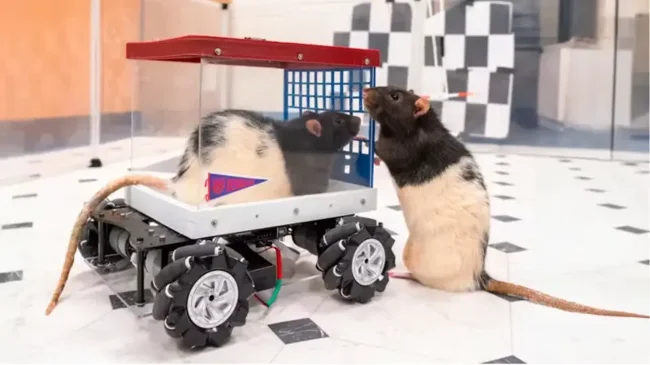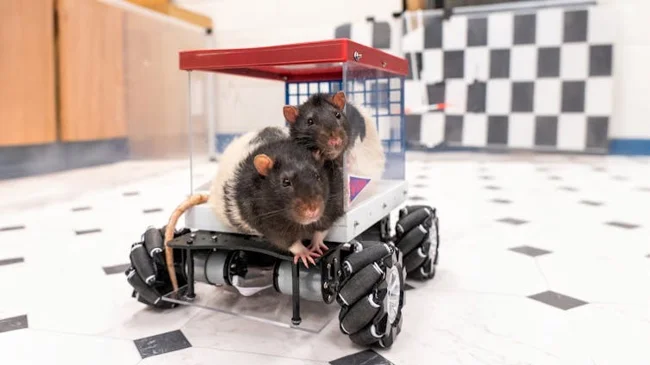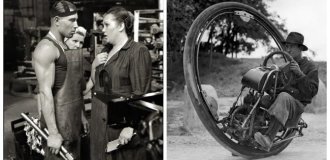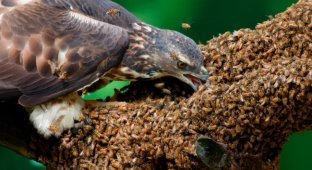Scientists taught rats to drive and developed a passion for speed in them (2 photos + 2 videos)
Rats have long been a staple of science due to their intelligence and complex social structure. However, scientists recently decided to break up the monotony of their studies by training their subjects to race towards treats at full speed. 
A research team has turned to their unique experiment of training rats to drive miniature cars. Their work, which initially attracted attention for its charm and unusual approach, allowed them to study the relationship between behavior, environment, and cognitive development in animals in greater depth. During their work, they discovered an unusual predilection for revving up the engine and driving for long periods of time in the little racers.
The findings by Kelly Lambert, a neuroscientist at the University of Richmond, and her team go beyond the animals’ acquisition of skills and allow them to understand how anticipation and pleasure work in lab rats. The experiments began by examining how engaging environments and tasks can affect stress levels and cognitive growth in rodents. The team trained rats to operate small vehicles by pressing levers and were rewarded with cereal treats. 
Even during the COVID-19 lockdown in 2020, Lambert noticed behaviors that hinted at a deeper attachment between the animals and the driving tasks. In one case, she noticed rats eagerly approaching their cages, displaying excitement similar to that of a pet dog anticipating a walk. The rats' enthusiasm for "driving lessons" led Lambert to speculate that the anticipation of an enjoyable task might be as motivating as the reward itself. Subsequent experiments supported this idea.
When rats were given a choice between a shorter route to a treat and a longer one involving driving a car, two-thirds of the rats chose the longer route involving the vehicle. This suggests that the journey is as enjoyable as the destination, drawing parallels with the human experience of working toward goals.
A neuroscientist noted that "planning, anticipating, and enjoying the ride" may be integral to maintaining mental well-being, reflecting the human tendency to delay gratification and set goals. This observation is consistent with broader research in psychology, where anticipation is linked to increased brain activity and stress management.
Other studies of animal pleasure have shown that animals, including rodents, have higher cognitive and emotional abilities than traditionally recognized. For example, behavioral neuroscience research has shown that rats can show empathy, make decisions, and even have a rudimentary understanding of fairness. Lambert's driving rats reinforce these claims, providing a vivid example of how an enriched environment can help seemingly simple creatures develop complex behaviors.

























